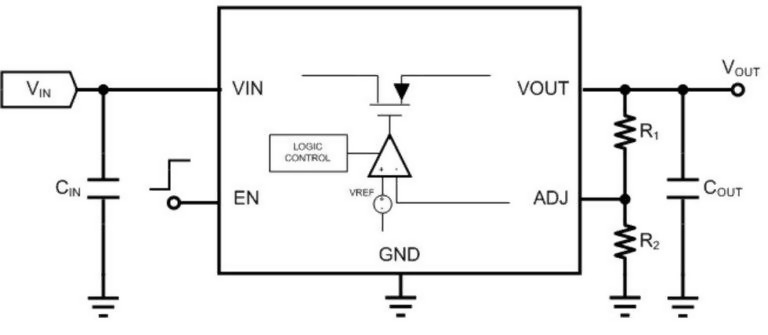What is a Voltage Regulator?
In the realm of electronics, a voltage regulator serves as a vital component responsible for maintaining a stable output voltage regardless of variations in input voltage or load conditions. Essentially, it ensures that the voltage supplied to a circuit or device remains within a specified range, thereby safeguarding against potential damage or malfunction due to overvoltage or undervoltage situations.

What Does a Voltage Regulator Do?
The primary function of a voltage regulator is to regulate the voltage supplied to a load or circuit, ensuring that it remains constant within specified tolerances. By continuously monitoring the input voltage and adjusting the output voltage as needed, the voltage regulator provides a reliable and stable power supply to critical components, minimizing the risk of performance degradation or failure. Helpful resource: https://www.monolithicpower.com/en/voltage-regulator-types
What are the Three Basic Types of Voltage Regulators?
Voltage regulators can be broadly classified into three basic types: linear voltage regulators, switching voltage regulators, and shunt voltage regulators. Helpful resource: https://www.elprocus.com/types-of-voltage-regulators-and-working-principle/
-
Linear Voltage Regulators: These regulators operate by using a variable resistor or transistor to dissipate excess energy as heat, thereby regulating the output voltage. They are simple in design and suitable for applications requiring low noise and minimal ripple voltage.
-
Switching Voltage Regulators: Also known as switching regulators or DC-DC converters, these regulators use semiconductor switches to rapidly switch the input voltage on and off, thereby converting it to a desired output voltage. Switching regulators are highly efficient and ideal for applications requiring high output currents or wide input voltage ranges.
-
Shunt Voltage Regulators: Shunt regulators regulate voltage by shunting excess current to ground when the output voltage exceeds the desired level. They are commonly used for low-power applications or as voltage references in precision circuits.
What Happens When a Voltage Regulator Fails?
When a voltage regulator fails, it can lead to a range of undesirable consequences depending on the type of failure. In some cases, an overvoltage condition may occur, potentially damaging sensitive electronic components. Conversely, an undervoltage situation could result in erratic behavior or malfunction of connected devices. Additionally, voltage regulator failure may manifest as excessive heat generation, voltage fluctuations, or complete loss of power. Helpful resource: https://www.carparts.com/blog/bad-voltage-regulator-symptoms-testing-replacement-cost-more/
What Voltage Regulator Do I Need?
Selecting the appropriate voltage regulator depends on various factors, including the specific requirements of your application, desired output voltage, input voltage range, current capacity, efficiency, and cost considerations. Linear regulators are suitable for low-power applications with relatively small voltage differentials, while switching regulators offer higher efficiency and greater flexibility for more demanding applications. Shunt regulators are typically used for precision voltage reference purposes. Helpful resource: https://predictabledesigns.com/how-to-pick-the-right-voltage-regulators-for-your-design
In conclusion, voltage regulators play a critical role in maintaining stability and reliability in electrical systems by ensuring consistent voltage levels under varying conditions. Understanding the different types of voltage regulators and their respective characteristics is essential for selecting the right solution to meet your application's requirements and ensure optimal performance and longevity.
Facts Checked by Hugh Johnson
Hugh Johnson stands tall in the realms of both the chip industry and the electronic parts industry, earning acclaim as an esteemed expert in these fields. With an extensive background steeped in semiconductor technology, Hugh's expertise transcends chip design and fabrication, encompassing a profound understanding of electronic components' intricate functionalities and applications. His seasoned knowledge spans diverse facets, from microchip architecture and fabrication techniques to the broader landscape of electronic parts utilized across industries.









